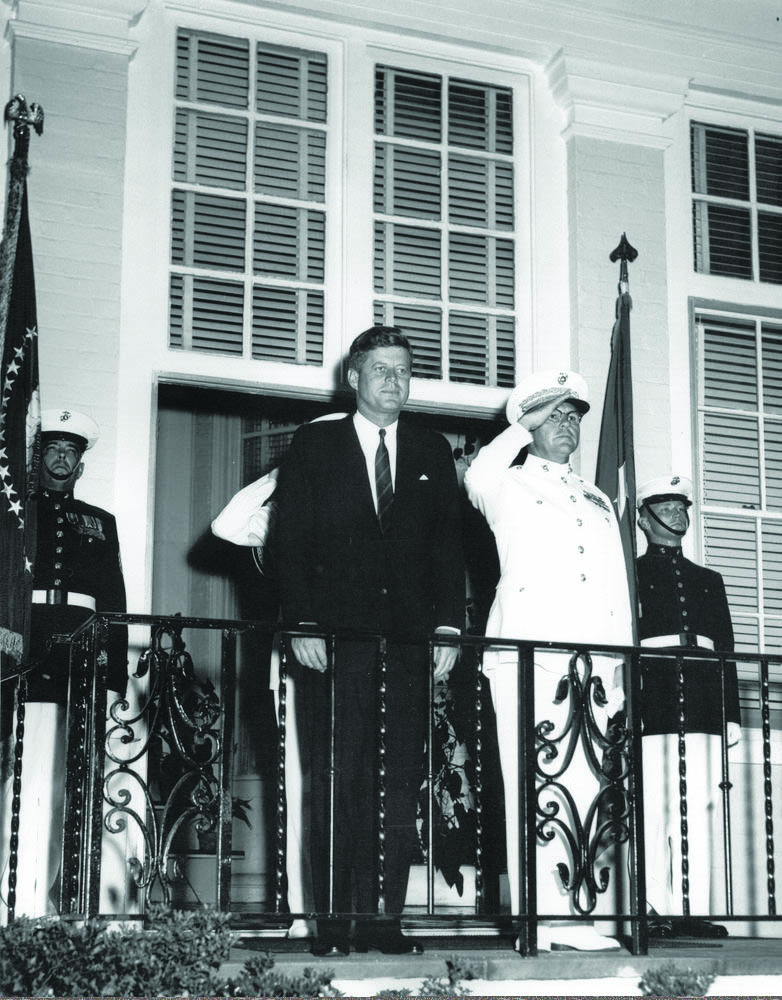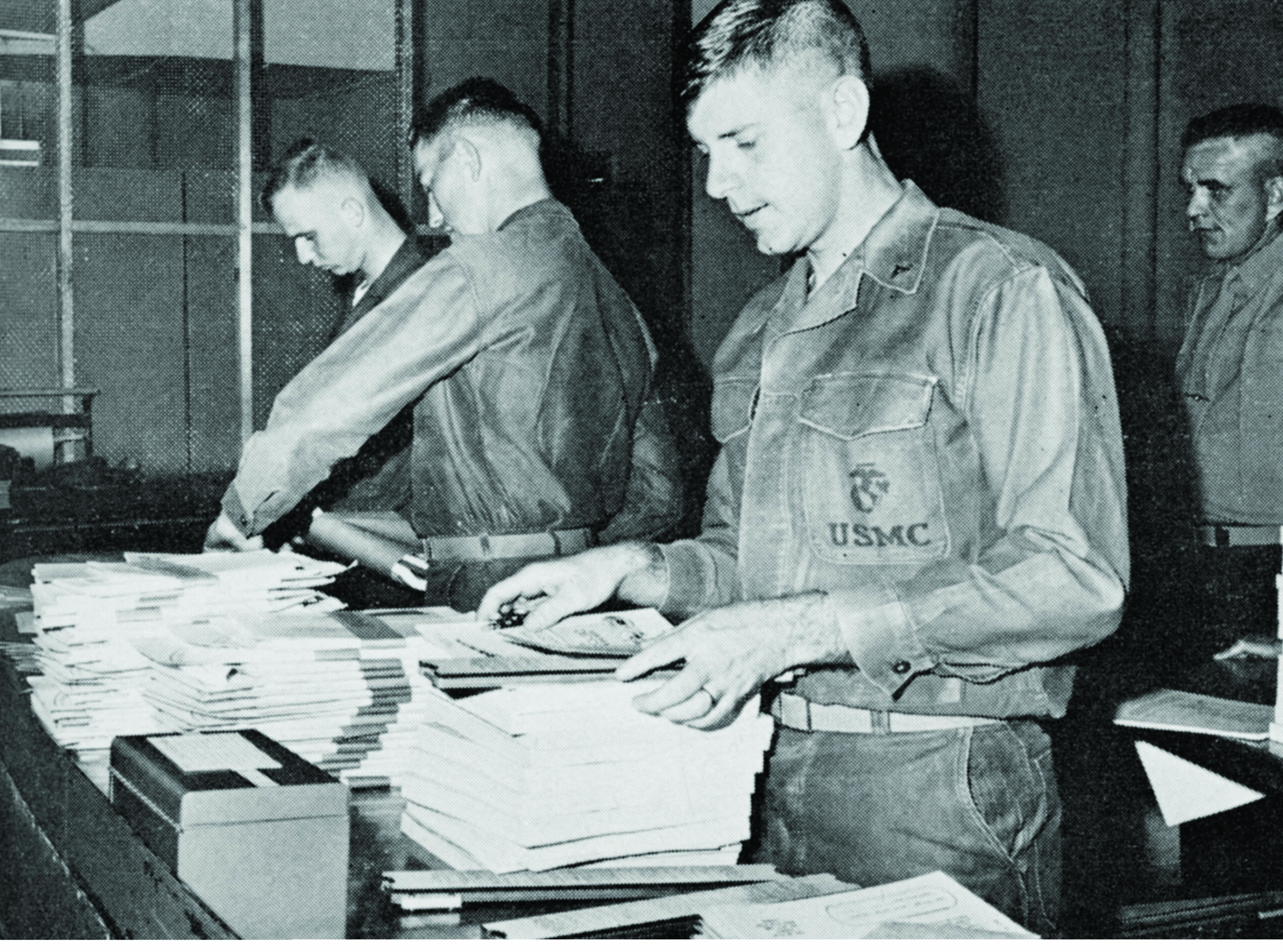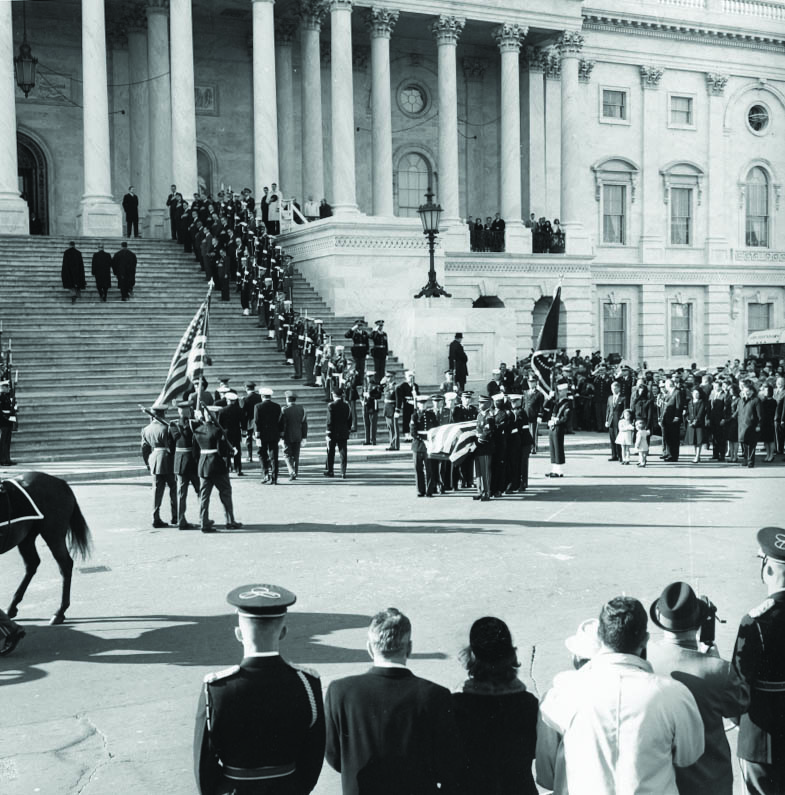
From Bellhop to Leatherneck: “8th and I” Marine Witness to Turbulent Time in U.S. History
By: Kipp HanleyPosted on June 15, 2024
In 1961, in the sleepy town of Marshalls Creek, Pa., everybody knew the Huffmans.
Unfortunately for Joel Huffman, the town was also familiar with his driving record. After wrecking two of his father’s vehicles and dropping out of college, the 19-year-old was figuring out his future while working at nearby Mountain Lake House — his family’s resort.
“The insurance company said to [my dad], ‘Harvey, we will continue to give you your insurance, but we will not cover you if Joel is driving,” Huffman laughed. “I didn’t lose my driver’s license, but I lost my insurance, so therefore I didn’t drive.”
His days as a bellhop at the resort soon came to an end when he decided to heed the advice of a coworker and Marine veteran and enlist in the Corps. Unbeknownst to him at the time, Huffman’s three years serving his nation would provide him with a bird’s-eye view of some of the most significant events in U.S. presidential history.
After a brief stint at Marine Corps Base Camp Pendleton, Calif., Huffman was transferred to the Marine Corps Institute (MCI) in Washington, D.C. During his two years there, he was assigned to security duty for the 22nd Commandant of the Marine Corps, David M. Shoup, during the Cuban Missile Crisis and made several trips with Gen Shoup to Camp David. He also was part of the security detail at Bethesda Naval Hospital during President John F. Kennedy’s autopsy and at the Capitol Rotunda with President Kennedy’s body lying in State.
“It wasn’t until years later I realized how close to different parts of history I was,” Huffman said. “I was standing right next to history. That was kind of stunning to me when I look back now.”

Notable Assignments
When Huffman arrived at Marine Barracks Washington, he was assigned mail duty, which ironically required him to drive to a Washington, D.C., post office to pick up letters for the base. During the summer silent drill team performances on Friday nights, he worked parking detail. In October of 1962, he was pressed into a more serious role during the standoff between the U.S. and the Soviet Union known as the Cuban Missile Crisis.
“I remember walking around the Commandant’s place to see if anybody was going to attack,” Huffman said. “We had weapons, but we didn’t have any ammunition. It was an unusual event, patrolling and walking around the barracks.”
Huffman was also sent to Camp David on several occasions to work perimeter security. You never knew when you were going to have that assignment, said Huffman, so the goal was always to get out of town on Fridays as quickly as you could before you received your orders. When he was selected, his trips were memorable as much for what he didn’t see as what he saw.
“They used to put curtains over the bus windows so we couldn’t see out,” Huffman said of the trips to the presidential hideaway. “… They didn’t want you to get back in your car and go up there.”
On the evening of Nov. 22, 1963, Huffman was one of a handful of Marines at Bethesda Naval Hospital. Assigned to the waiting room next to where Kennedy’s autopsy was being conducted, Huffman recalls then First Lady Jacqueline Kennedy coming into the room briefly, blood from her husband still evident on her pink suit.
“… We didn’t have to do anything special other than just being alert,” Huffman said of that assignment.
Two days later, Huffman was standing on the Capitol steps as Kennedy’s coffin was being brought up to the rotunda. He still has his paperwork from MCI’s commanding officer, E.B. Wheeler, thanking him for representing the Corps honorably that day.
“Your individual response in conducting this difficult but distinguished duty was in keeping with the highest ideals and traditions of our Corps and our Barracks and will be a timeless reminder to your successors of exceptional service during a period of profound national grief,” read the letter dated Jan. 16, 1964.

Once a Marine…
While Lance Corporal Huffman was an expert shot [he was invited to be a member of the USMC rifle team] and a well-thought of Marine for his performance in the mail room, he decided to trade in his uniform for civilian clothes in 1964. Huffman worked at several banks before spending more than two decades as the treasurer for the Desert Southwest Annual Conference for the United Methodist Church.
While brief, Huffman said his time serving his country 60 years ago prepared him well for a life in the civilian world. In addition to learning discipline and teamwork, he also became a father while serving in the Corps.
“I grew up in the Marine Corps,” Huffman said. “That’s when I became a man. I realized I had to take care of myself … for something larger than me. And if I didn’t learn anything, I learned that … together you can do more.”
Keep reading for more tales from the Marine Barracks in Washington, D.C., during the early 1960s.
Author’s bio: Kipp Hanley is the deputy editor for Leatherneck magazine and resident of Woodbridge, Va. The award-winning journalist has covered a variety of topics in his writing career including the military, government, education, business and sports.




